Indya Moore Expects More From the Runways
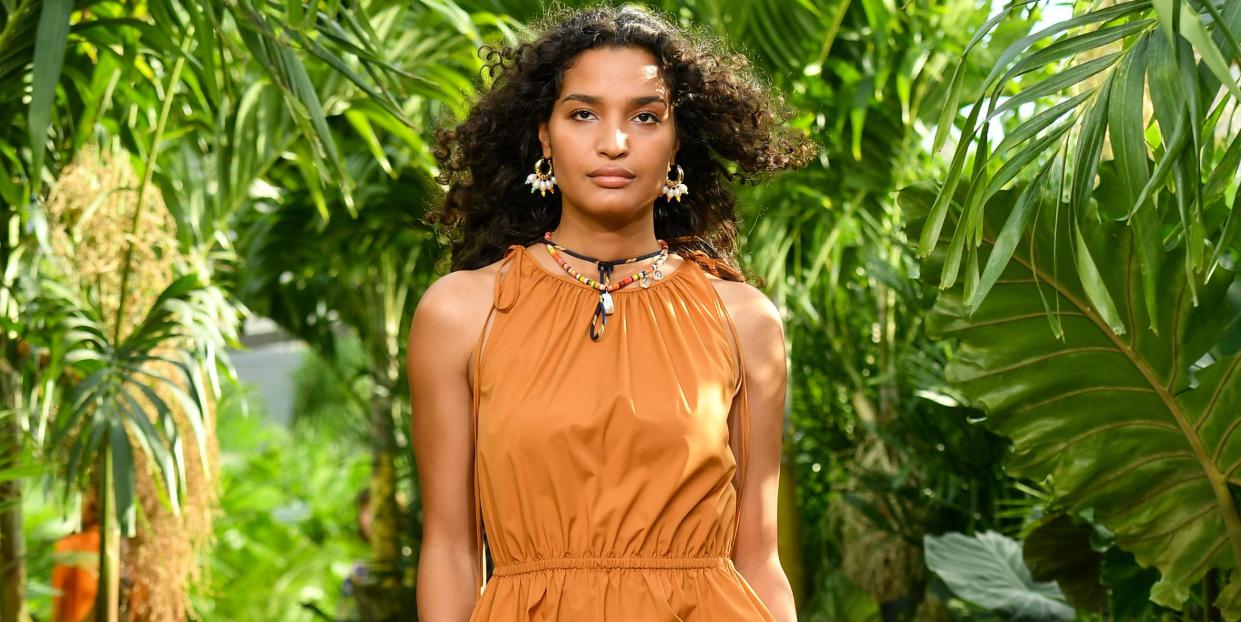
When I spoke with model and Pose star Indya Moore back in May, they were quarantining in, in their words, “a regular-ass home in Chicago,” where they had already begun doing at-home shoots. Below as part of ELLE's look at the future of fashion, they reflect on the ups and downs of working from home as a model, the way respectability politics intersect with the industry, and the fashion world’s shameful record when it comes to representing Black trans people like themselves.
How is the modeling industry changing right now?
It’s definitely changed. So far I've completed two quarantine shoots at home. I took the photos myself. It was a combination of me taking selfies, creating makeshift camera stands out of laundry bins and chairs and Styrofoam. One of the challenges that I have been facing has been having to be the photographer, the model, the makeup artist, the lighting person. I don’t know shit about lighting, and I learned a whole lot during these shoots.
Has that been fun? It sounds like you've been adjusting, but liking it?
I mean, it can be really fun. There are moments where it can be really exhilarating, especially if I'm getting great pictures out of the work that I’m doing. I appreciate being challenged in this way and being able to get really creative and hands-on. It's also frustrating because my partner and I are quarantined here in his home and my partner is supporting some friends right now who are staying here, too. I'm not in a mansion, a high-class condo or any of these things that a lot of public figures who are shooting are probably in. I've been challenged by that and thinking about respectability politics in the industry and how I feel vulnerable to that critique.
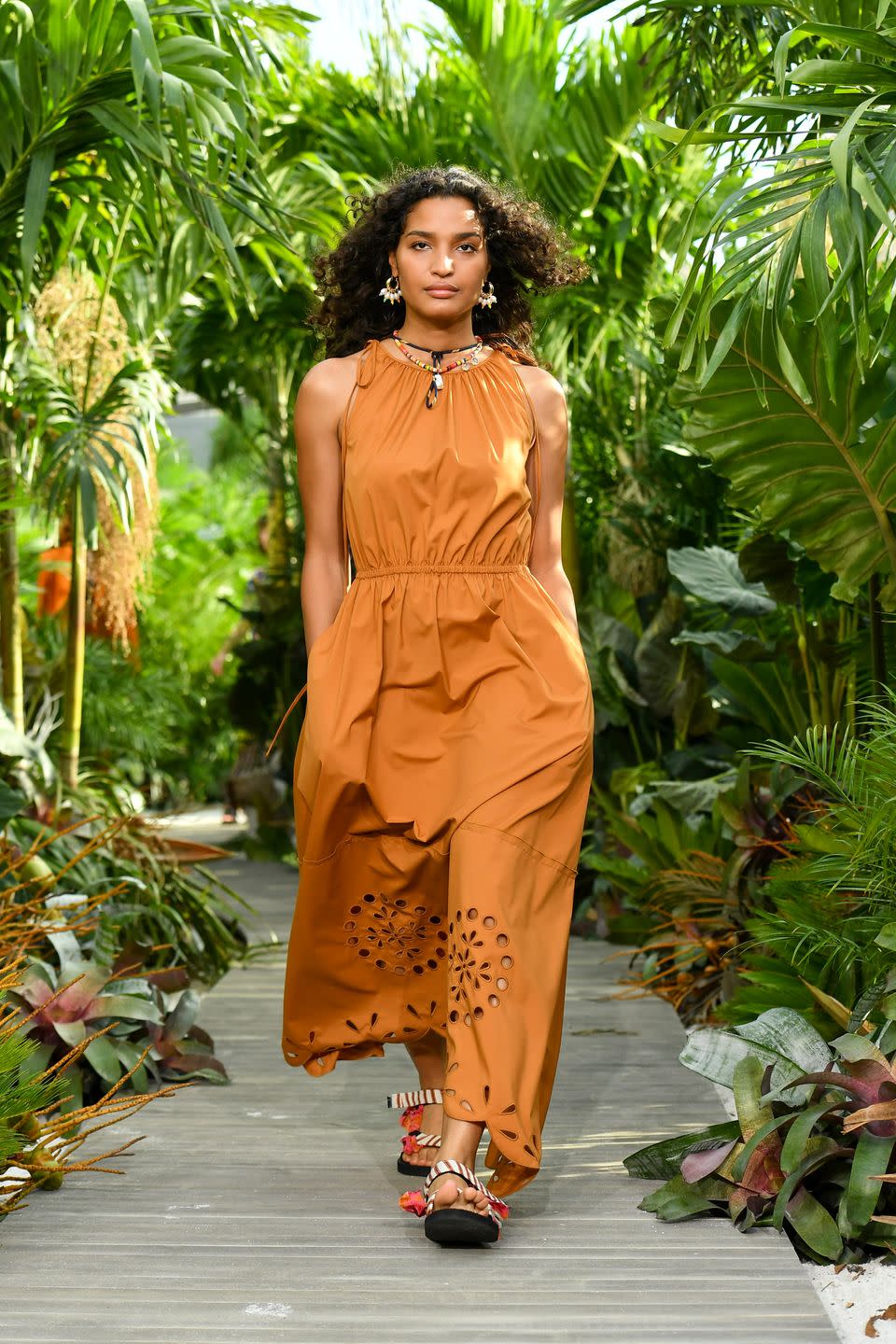
I think that's probably been a challenge for a lot of creative people, because your living space has never been so much of a class signifier.
Exactly, and I think it's a conversation worth having. All of this information, my personal life, everything that I'm going through is starting to suddenly be so visible. The entire world is now having an opportunity to see my living space and situation. I’ve also been afraid of saying no to something because whatever my fears may be about my privacy, these are relationships with brands that I want to keep.
I know a lot of folks are seeing people taking photos of their mansions, and faces that they can't particularly relate to right now, and so I just feel good being able to give people an opportunity to connect with me in a really personal way. I’m living right now in a regular-ass home in Chicago and that's something I'm really proud of.
Do you feel like you're portraying yourself differently when it's you doing the creative direction, as opposed to the way that a photographer or stylist would see you or mold you?
Definitely. [On sets] I feel like a doll. I'm the figment of everyone else's vision and imagination. People are using my body and my essence and my likeness to bring together the story that they want to tell. The story that I tell is often through my movement and the interview that I give. I don't really have much autonomy in these shoots, and that's what the nature of these shoots are. They call you, they hire you to sell a product and you make it work with your movement, but I think here it's a little different. It’s already more personal, it's already more me, it's already different than I was portrayed. I feel more comfortable not wearing makeup. I’ve never not worn makeup for a shoot and I don't give a shit about wearing makeup right now. I feel comfortable just being my raw self. I'm always trying to retain as much of myself as possible in shoots, even though I have very little creative autonomy.
I think a part of this experience in quarantine is, it almost made me feel like I want to hide. I feel stuck and trapped and enclosed. I feel like I can't reach my loved ones in a way that I would like to reach them, but I also feel so vulnerable. I've never felt this vulnerable outside of shooting Pose because it's so reflective of my actual history. I've offered up and volunteered my privacy so that folks can feel more connected and more grounded being home. But I also feel like doing that kind of makes me feel like I want to hide.
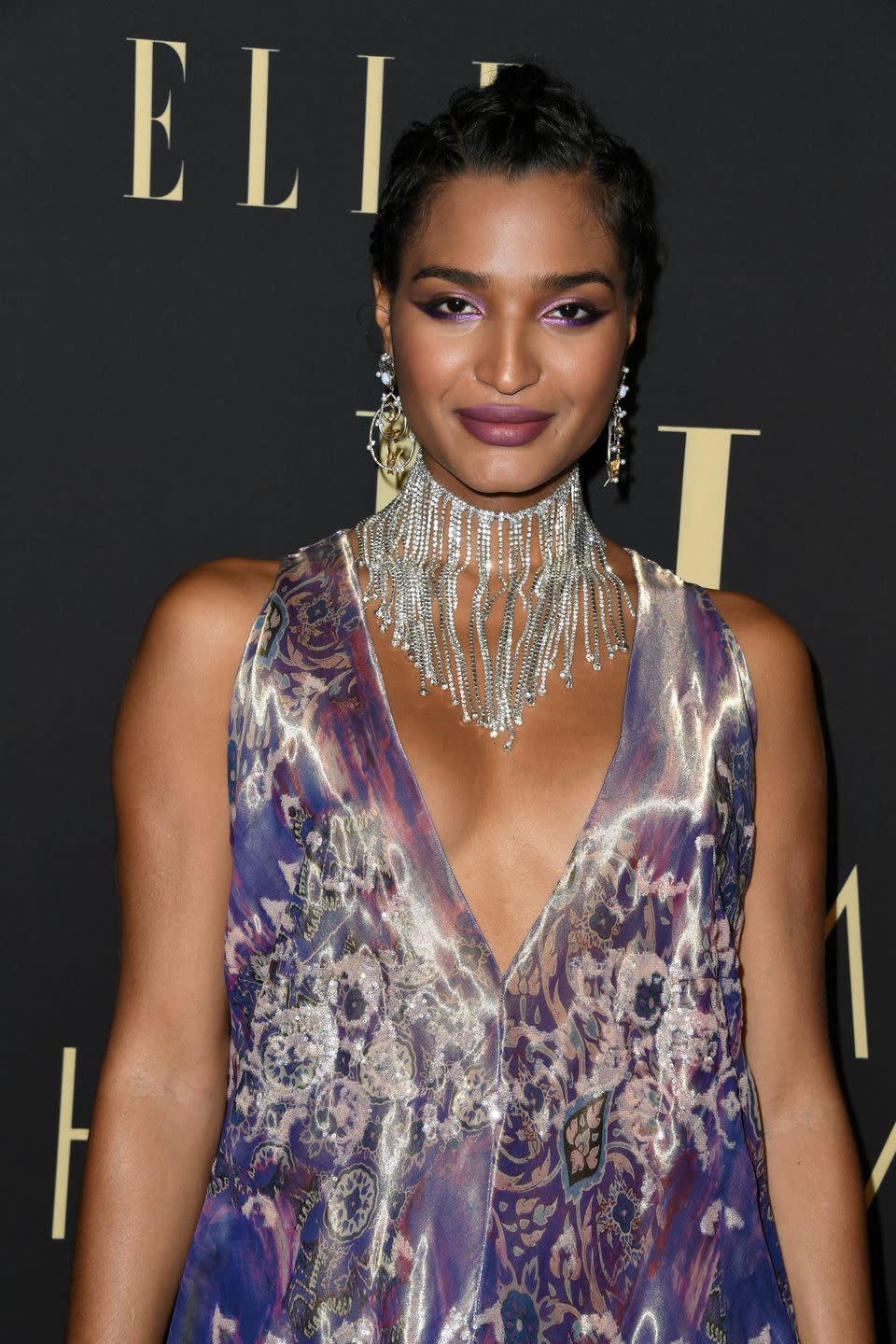
Would you be interested in getting more into photography or styling or creative direction, something behind the camera that you’ve discovered during this time?
I’ve always loved taking pictures, so this was a piece of cake. In that regard, I was really excited to just get behind the camera. I’ve always been into creative direction. It’s really fun to execute something in your mind and I love that challenge. That’s what we do in our everyday lives, we execute shit in our minds, right? We are all the creative directors of our own lives. I also feel like I ain't thinking about creating shit after this right now. I’m not thinking about, OMG, I can’t wait to come out of here and direct a movie. Where I'm at right now in my heart, is, I’m most inspired to explore what it means to be alone and happy even in the company of others and also what it means to just be and let go of shit. Being in quarantine has definitely brought up a lot of things that I'd put away at the back of my mind. A lot of trauma that I haven’t dealt with has come up. It's been a really emotional and roller coaster-y time for me. Trying to balance creativity and making things with just wanting to just sit with myself for a moment and go over everything that’s coming up, I think it's just been a lot. I’m really excited to see what it means to give myself more of that grace to just be okay with not creating for once, not being a creative machine. I just want to be okay with not knowing what's next and what’s in front of me.
Everyone is always like, ‘It’s all about remaining present.’ I think so much of my life I've only been able to be in the present because I didn’t have the luxury of peace to plan my future, to reminisce on the past. I’m either trying to run away from the past and stay in the present as much as possible without thinking about the future, or just living in the past. I’ve learned very quickly that I have to think about the future, working in such a fast-paced industry. Everything about this machine is all about anticipation and thinking about the future. I think a large part of my peace is finding a balance, to be okay with not creating shit and sitting down and fucking smoking weed and playing a video game for once.
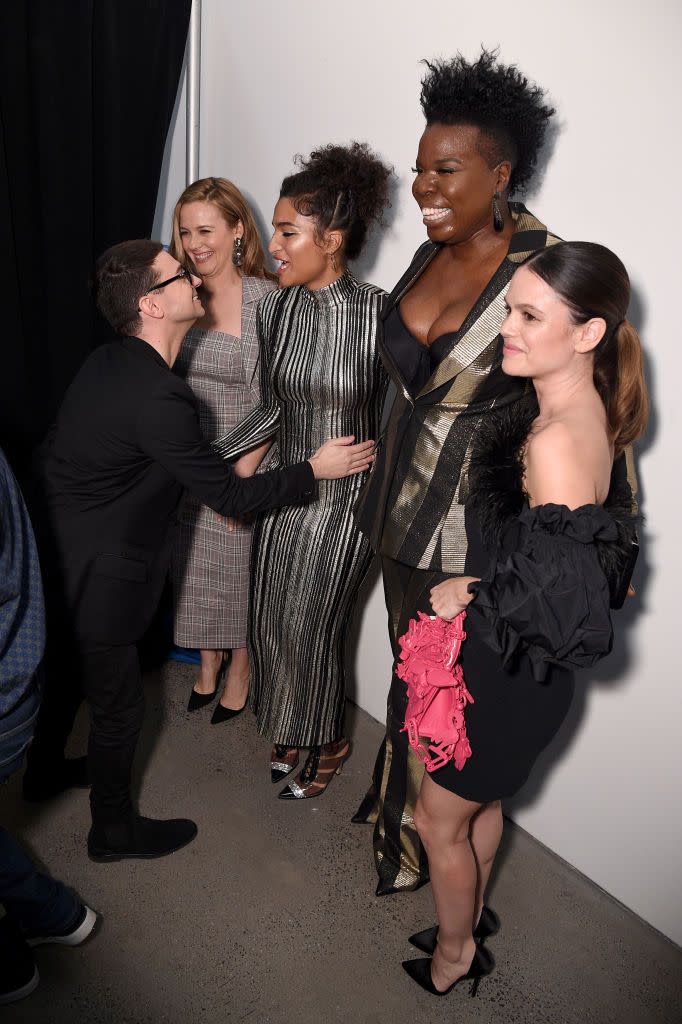
We’ve talked so much about shoots and I do also want to bring up the runway. I know you’ve done some runway shows and I wonder if you have any thoughts on how shows will change from a model’s perspective? Because several of the fashion weeks are going digital or semi-digital.
The black cars and the velvet rope and the security guards keeping folks at a distance—I don’t think any of that will ever change because that’s so much a part of the fashion world. That's what people all around NYC get up and go to Fashion Week, or sneak into one of the shows. That’s exactly what I did. Trying to find ways to sneak into these shows and bypass security and get a chance to say “hi” to my favorite artists who are coming to NYC for the show. Getting a chance to be visible, to get a cameo in front of those cameras, shooting celebs coming out of the black cars. All of those things are what makes Fashion Week, Fashion Week. I don’t think those will change even though it's wasteful and stressful as hell.
Fashion always looks for ways to break convention, and often in conventional ways, which is a really interesting dichotomy. I think I'm more interested in wanting fashion to evolve to go past the romanticism of white women and whiteness. I think we need to move forward, and I don’t think white folks really see this happening, but Black and brown folks do. Dark-skinned Black trans women and femmes, and folks who are watching fashion shows and never get the chance to see themselves, know this. It’s often extremely homogenous and if there are POC it’s one or two. Fashion shows seldom reflect what humanity looks like. As a Black trans person who is also deeply in love with fashion and everything that can be done with it, my perspective about how the fashion world can change isn’t leaning so much into, How can it evolve after quarantine to be more creative. I’m not thinking about that. I’m still thinking about the visibility of dark-skinned Black people on runways. I’m still thinking about the visibility of dark-skinned Black trans people on runways. I’m still thinking about the visibility of dark-skinned fat women, or dark-skinned fat LGBT folks and thinking about the bodies that are still missing from these runways, the people that are still not seeing themselves in these places that we apply so much importance and value to. I think marginalized folks will eventually stop investing in things we don’t get to see ourselves in. Why would you invest in someone who doesn’t see you or doesn’t want to see you? The only thing I'm thinking about the evolution of fashion is to include more of my type of people and more of my community. I think the way we can make fashion more interesting is by portraying everybody who participates in fashion.
Yes, including behind the scenes, the people who are working on shoots.
Yes, thank you so much for saying that! Yes, behind the scenes as well. I think there is so much more to be done. I hope that fashion designers and creators are taking the time right now to learn about real folks’ circumstances, real folks’ scenarios that people are going through in our society. I want them to learn about these things so they understand why it’s so important to represent these people on their runways and in their brands. Why it’s so important to hire marginalized people, without necessarily cutting anyone else out of work. I think fashion can change infinitely in so many ways, but I think the one way that it hasn't changed is in its representation. It’s always one or two Black people. I'm not okay with it and it pisses me off and makes me really sad, not seeing myself on a runway for so many years, not seeing myself in media, not seeing myself anywhere. It messes with your self-worth. It really makes you question your self-worth.
I have to be honest, I'm not excited about the fantasy of fashion. I can’t go on with this fantasy of a white woman. I'm not down with the fantasy if that’s all you can offer me. I’m finished trying to be white. It’s impossible and it needs to stop, and this is the message that is going out to people when we are selling the fantasy of fashion only through white men. It has to change because that is not a fantasy that we all get to live. It’s not a fantasy that we can connect with in real ways anymore. It's making us hate ourselves.
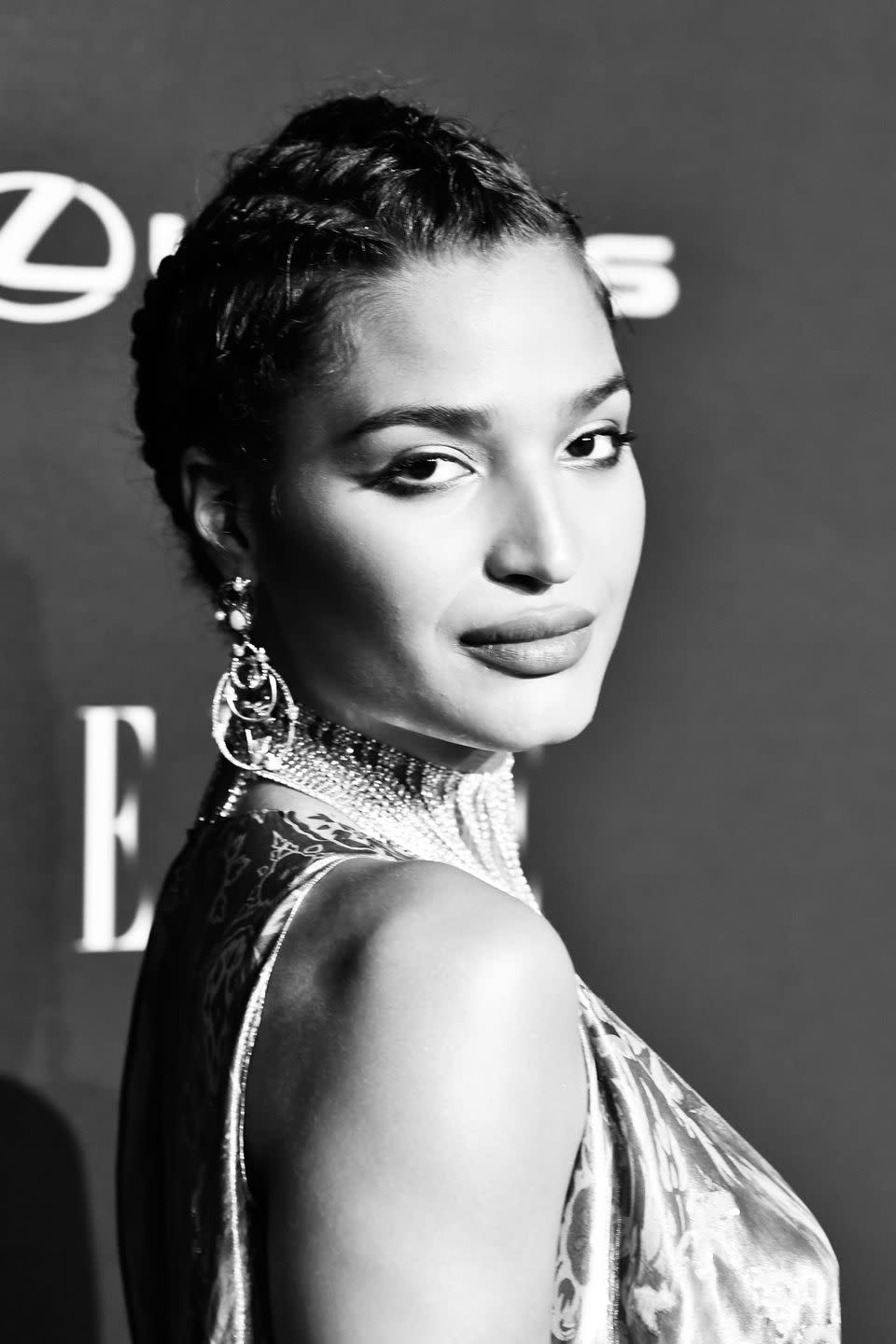
I was searching image banks looking for conceptual ideas for a story, and when you look up things like ‘imperfect beauty’ it’s a person with a slight tooth gap or freckles, people who fit every conventional beauty norm and don't really deviate from it but like….they have freckles!
Girl, I need you to quote yourself for this article too, please! Because these are really important things for people to consider and think about. These are actual fragmented parts of our society and we have to change if we want to evolve in beautiful ways and we can’t evolve beautifully if the way we conceive beauty is stifled. When we stifle beauty, we stifle evolving beautifully and that’s never going to change. I used to think my big lips were an imperfection. Even in conversations where we talk about loving ourselves, we’re like, ‘Oh, I love my imperfections.’ Who taught you that your traits are imperfections?
I think we have to look at fashion to deconstruct so much of the way we see ourselves because fashion is what we use to be seen. For a lot of young kids, the first dreams we have are stimulated by what we see on TV, on the cover of magazines and in the media that we consume. There's so much responsibility in that, that the fashion world needs to be accountable to. We don’t need to think about how can we use what we learned in quarantine to further build into this already problematic industry. We don’t need to build further. We already have issues in this industry that needed to be fixed, to be solved, years ago. The one common [way] that this quarantine can benefit us as creators, is to have the space to think about what we are creating. The messages that we are sending. How can we be more accountable to the world around us? How can we move past only being about commercial benefits? We can figure it out and we have nothing but time and opportunity to think about the world that we have been living in and contributing to during the quarantine. I can’t imagine anybody thinking about anything but that.
This interview has been edited and condensed for clarity.
Read More On The Future of Fashion
You Might Also Like

